Dean Tullsen
A Principled Approach to Learning Stochastic Representations for Privacy in Deep Neural Inference
Mar 26, 2020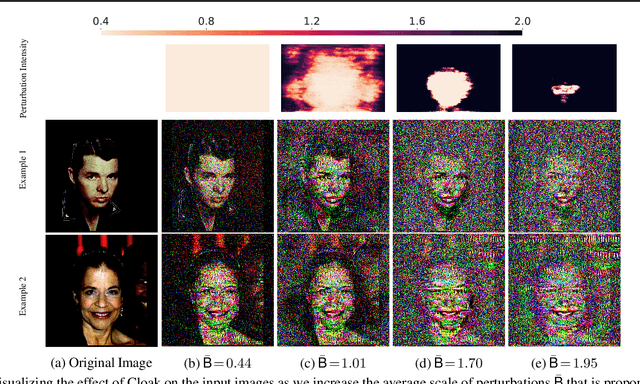

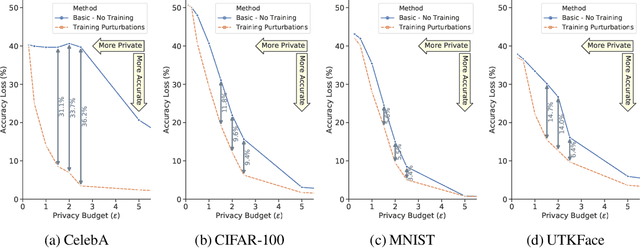
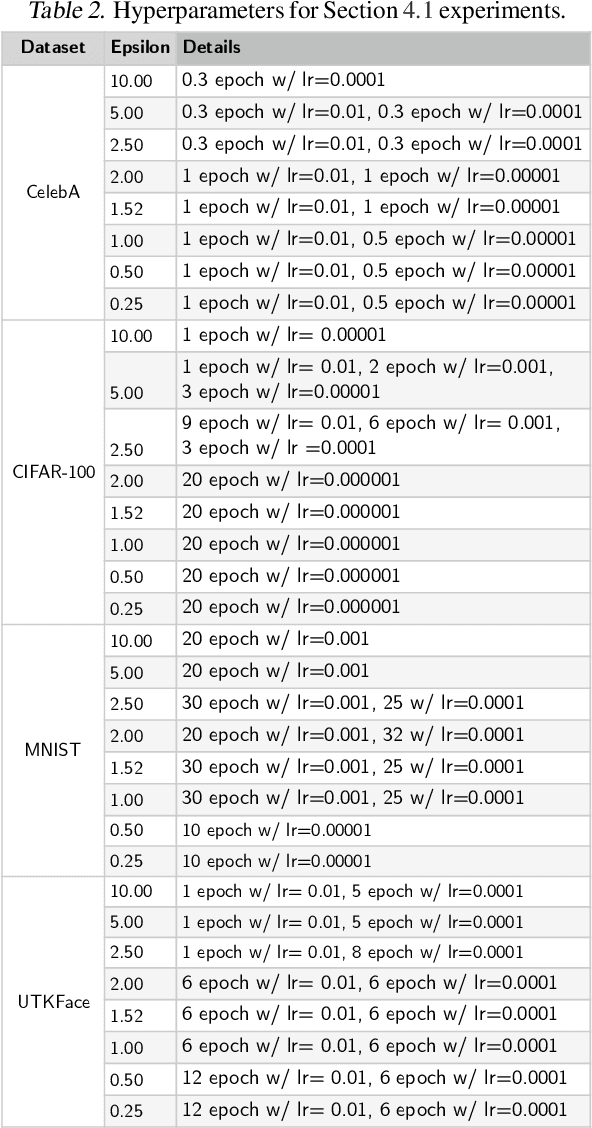
Abstract:INFerence-as-a-Service (INFaaS) in the cloud has enabled the prevalent use of Deep Neural Networks (DNNs) in home automation, targeted advertising, machine vision, etc. The cloud receives the inference request as a raw input, containing a rich set of private information, that can be misused or leaked, possibly inadvertently. This prevalent setting can compromise the privacy of users during the inference phase. This paper sets out to provide a principled approach, dubbed Cloak, that finds optimal stochastic perturbations to obfuscate the private data before it is sent to the cloud. To this end, Cloak reduces the information content of the transmitted data while conserving the essential pieces that enable the request to be serviced accurately. The key idea is formulating the discovery of this stochasticity as an offline gradient-based optimization problem that reformulates a pre-trained DNN (with optimized known weights) as an analytical function of the stochastic perturbations. Using Laplace distribution as a parametric model for the stochastic perturbations, Cloak learns the optimal parameters using gradient descent and Monte Carlo sampling. This set of optimized Laplace distributions further guarantee that the injected stochasticity satisfies the -differential privacy criterion. Experimental evaluations with real-world datasets show that, on average, the injected stochasticity can reduce the information content in the input data by 80.07%, while incurring 7.12% accuracy loss.
Shredder: Learning Noise to Protect Privacy with Partial DNN Inference on the Edge
May 26, 2019

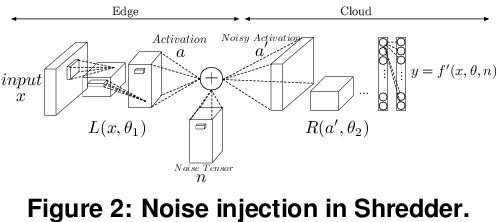
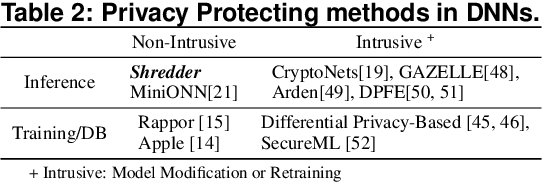
Abstract:A wide variety of DNN applications increasingly rely on the cloud to perform their huge computation. This heavy trend toward cloud-hosted inference services raises serious privacy concerns. This model requires the sending of private and privileged data over the network to remote servers, exposing it to the service provider. Even if the provider is trusted, the data can still be vulnerable over communication channels or via side-channel attacks [1,2] at the provider. To that end, this paper aims to reduce the information content of the communicated data without compromising the cloud service's ability to provide a DNN inference with acceptably high accuracy. This paper presents an end-to-end framework, called Shredder, that, without altering the topology or the weights of a pre-trained network, learns an additive noise distribution that significantly reduces the information content of communicated data while maintaining the inference accuracy. Shredder learns the additive noise by casting it as a tensor of trainable parameters enabling us to devise a loss functions that strikes a balance between accuracy and information degradation. The loss function exposes a knob for a disciplined and controlled asymmetric trade-off between privacy and accuracy. While keeping the DNN intact, Shredder enables inference on noisy data without the need to update the model or the cloud. Experimentation with real-world DNNs shows that Shredder reduces the mutual information between the input and the communicated data to the cloud by 70.2% compared to the original execution while only sacrificing 1.46% loss in accuracy.
 Add to Chrome
Add to Chrome Add to Firefox
Add to Firefox Add to Edge
Add to Edge